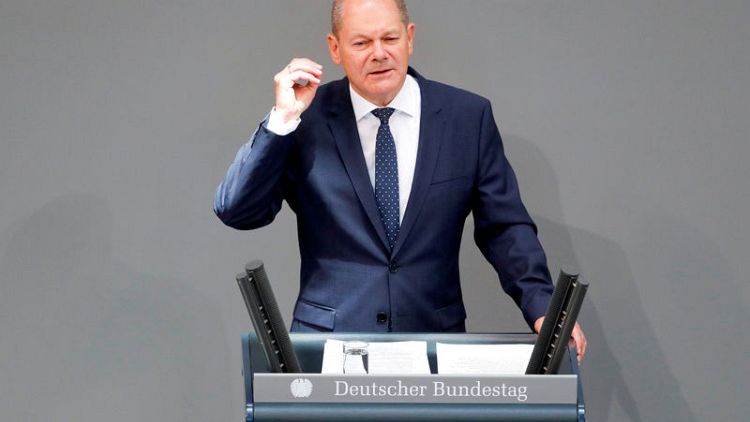By Michael Nienaber
BERLIN (Reuters) - Germany can counter a possible economic crisis by injecting "many, many billions of euros" into the economy, Finance Minister Olaf Scholz said on Tuesday, signalling his readiness for a big stimulus package if the economy tips into recession.
Speaking to lawmakers in the general budget debate of the Bundestag lower house of parliament, Scholz said that Berlin had laid the foundations with its solid budget planning and its policy of not taking on new debt to do more if a crisis hits.
"Because then it will be very important for us as the largest economy in the middle of the European Union, whether we are actually able to counteract a negative economic trend," Scholz said.
"And from my point of view, therefore, with the solid financial foundations we have today, we are in a position to counter an economic crisis with many, many billions of euros if one actually breaks out in Germany and Europe," Scholz said.
"We'll really do it then, it's Keynesian economics, if you want to put it that way, it's an active policy against the crisis," Scholz said. But he added that so far there was no economic crisis.
Germany's economy contracted by 0.1% quarter-on-quarter in the second quarter and some weak data since then has fuelled concerns that the economy could slip into recession in the July-September period. Economists generally define a technical recession as at least two consecutive quarters of contraction.
Scholz's comments followed a Reuters report on Monday that said Berlin is considering setting up independent public agencies that could take on new debt to boost investment in climate protection and infrastructure, without falling foul of strict national spending rules.
(Reporting by Michael Nienaber; Editing by Michelle Martin)



